Don't hold back: On the pleasure of doing as we please, and caring less for judgement

I’ve been thinking about what it means to be free and what stands in the way of the attempts to be so, specifically in relation to creative expression. I’m beginning to really see that it’s all the noise, where noise is the tyranny of chatter in the untamed mind, as well as - and the collective result of - all the external white noise of what we learn, what we consume, and what we’re told to be and do (which makes for the overfilled mind that needs taming).
The other thing with ‘noise’ is that itself is just a label for sound. For it’s a matter of perception which shapes experience, what we allow to shape our experience, what we desire and reject, what we yearn for and resist, what we ignore and fixate on. If only we could let it be simple, pure white noise and not label it, get activated by it.
The reasons we do are both complex and simple, agonizing and ridiculous, understandable and “normal”. It’s what we’re taught, it’s what we see, it’s what we come to believe is the way of things. Before we know it, everything is a big headache of a deal.
Just do it…but wait…
This is the nub of chapter 23 of the Tao Te Ching:
Text within this block will maintain its original spacing when published“Express yourself completely then keep quiet. Be like the forces of nature: when it blows, there is only wind; when it rains, there is only rain; when the clouds pass, the sun shines through... Open yourself to the Tao then trust your natural responses; and everything will fall into place.”
In other words, be like nature – or like water, as Bruce Lee famously said – be open to what comes without making it anything more than it is, let yourself go with the flow, then let things go, let them be. Relax.
Because it’s when we make a big deal out of things, that’s when we get stuck, that’s when we suffer the existential woes of self-doubt and confusion, and all the playing small and the internal wrestling that follows. And we do that because it’s partly the way of the troubled mind, and partly the way we are conditioned by all the ways we’re raised, socialised and educated.
Capitalism (and all the associated insidious isms of colonialism, individualism, etc) has a lot of to answer for; the mess we’re in primarily, individually and collectively. It tells us that everything has to mean something, that the thing itself cannot be enough, that we are not enough, that what we do must be connected to some productive purpose, that quantity over quality is what counts, that the more we know and the more we are known, the more valid our existence and what we have to show for it.
None of which is absolutely true - even if it feels, very painfully, relatively real - and is in fact the cause of the hubris of progress, whereby we now live in a world where there is so much stuff and productivity that we’re fucking up the planet and our minds in our attempts to do more and do better, which too often, leads to more harm than good.
If we could only just let it, ourselves, be. If only indeed, because the way of all the aforesaid forces makes it a challenge, as does the society and the human realm we live in. Working against that is hard.
I’ve always known this, read about it, experienced the suffering of it, learned about it, and tried really excessively and maybe a little counter-productively too hard to be free of it.
Finally, after 20 odd years of learning and unlearning and all that trying, I feel it. I’m learning to let things go, let things be, rest in longer and longer gaps between the noise and the silence, finding the place where it’s all just sound, stuff and nonsense.
Alas, it took the time that it took. To get trapped in analysing why, judging and berating and lamenting, would be to continue the cycle. The key is to break it.
Pause ...
Thank you for reading my words. There's more to follow. I hope you like what you find & feel moved to keep reading. If you feel you've received something from my work & wish to support me in return, please consider a paid subscription, which gives you my deep gratitude, and access to extra content, including a monthly round-up of inspirational readings and teachings, plus ideas and contemplations for your own reflective practice.
SubscribeThe art of noise
The 1980s-90s band The KLF were on to this, and wanted to break everything, in fact break free from socialised conditioning and the noise of the nonsense – by creating their own.
I remember me and my sister listening to their first album, being moved in that way that only music can move you, at a cellular and spirited level where you just have to have that sound, feel that vibration, let yourself get carried away. There was something about them, the chaos and power of their performances that we watched on Top of the Pops (ready to hit record on the old school VCR, the glorious days of the 1980s and 1990s, pre-technological excess, or progress, depending on your view).
What I didn't appreciate until I watched the documentary, ‘Who Killed the KLF’, was the depth of their ideas and the crazy-good turned total madness of what they were doing; the kind of madness that had the insight and the foresight to see the direction that society was heading in terms of ideology, religiosity and capitalism – the religiosity of capitalism, you could say – and the mental and societal slippage that was all leading to.
They went from anarchical pranking and widespread adoration, to derision and an infamous demise, burning money and threatening to kill sheep on stage.
Watching the doc, I was struck by how free the KLF aka Bill Drummond and Jimmy Kauty were when they started out, and the kind of liberation from constraint and societal bullshit they inspired in their fans and followers.
I’m not sure if 11/12 year old me – which is around the age I would have been when they released their classics ‘3am Eternal’ and ‘What time is love’ – really “got” this at the time, and maybe that’s the point – the sheer magic and intensity of what they were doing was free from the clutter of ideas and ideologies, it was purposefully chaotic, turning any sense of sense upside down, not ridiculing it or critiquing it as such, just refusing to engage with the commodification of creativity in a money-obsessed art world.
Even if you haven’t seen the doc (I highly recommend) or listened to the KLF (again, treat yourself), there’s so much that makes universal sense when it comes to reflecting on the ways we get caught up and held back by the social norms that subconsciously incarcerate us.
And in turn, it sparks a conversation about the power of people and art to lift us up out of the sleeping state that is conformity to behaviour and thoughts that repress rather than serve our own spirit. Namely, all of those limiting expectations, questionable doctrines and external and internalised impositions around what we “should” do, whether in terms of art or work or anything else, and how we should do it.
Two insights really stayed with me. One was from the author Alan Moore who said, pointedly: "The KLF achieved all their intentions even though they had no intention.” That was the nature of their process and their performances; they didn’t care about the results, they did it all for the sheer thrill of it. They didn’t care whether people understood them, in fact, they were upending the idea that everything had to mean something, or rather the status quo around what things mean and who ascribes value, with their deliberately convoluted take on the philosophy espoused by the esoteric novels, The Illuminatus! Trilogy.
Of course, years later, as the documentary shows, the world did turn to the kind of chaos and financial meltdown that Drummond and Kauty could see coming, owing to the very obsessions and materialism they railed against. Their work made sense in the end, even though they didn’t care, want or intend it to. The self-titled timelords were truly ahead of their time.
The dissatisfactory nature of being
There’s a scene towards the end where Bill Drummond reflects on some of the more crazed ideas, such as the hanging dead cows from a pylon (one that caused them to stop and realise they’d gone too far, before they went through with it, and then went their separate ways): "I don't even know why I did it, it wasn't for fun. You keep thinking you're going to get something out of your system but you never get it out."
I felt a sad empathy hearing him say that, getting a sense of the intense energy that must have gone into what they were creating, and the state of mind that produced such extreme acts, only to leave them feeling perpetually dissatisfied, to feel like nothing they did really mattered or meant anything.
It’s that idea, of the need to get something out of one’s system, and the ways in which we do it that really hit home for me. The extremes to which we’ll go, and the extremes to which we get taken, when we lose our way. And how the mediums we use, whether music, writing, art, or whatever your channel of choice, can serve us really well in directing our energy and inviting release – if we use them skilfully.
Free writing
Writing is what helps me get things out of my system. It was (and remains a constant) life-affirming and life-saving companion ever since I was a child, like drawing and painting, which I used to enjoy doing and being with for the pure pleasure of it.
As per the oil painting that accompanies this piece; I vividly remember making that, aged around 20, sitting in the bedroom where I grew up and must have returned to in between university years (so I was likely dealing with some shit, which the creative process helped with), listening to music, loving the feel of the oil pastels and the way the merging colours changed the shape of what I’d drawn in pencil, feeling the shifting nature of what was before me and how I felt inside consequentially, how the music moved me and my hand in the process, immersed in the play of texture, sound, colour, shade and light. It’s probably one of the “best” pieces I’ve created, because of how it emerged as much as what emerged on the paper.
It’s possibly why I’ve held onto it all this time; because I like it, not because anyone said it was good or anything, but because it helps me remember that feeling and what comes of and through an immersive process that is relatively free of external noise - good work, where good is satisfaction that doesn’t need external validation, because the vaidation comes from the thing, the process, the practice itself.
Writing was and is a refuge in a similiar sense; it’s a means of expressing myself freely, a way to get gnarly and moody, real and raw, in the safety of my childhood diary and now in an abundance of notebooks.
Alongside that, I’ve always written for the creative thrill of it. For the joy of watching sentences and sense amid nonsense be conjured by the simple magic union of of mind, movement, pen gliding across paper or fingers on keyboard, faster and more excitedly as the empty space gets filled up. Whether sparks fly and the seedlings of ideas emerge is neither here nor there (well it is, if it’s here, it definitely increases the thrill of it), it’s first the sheer satisfaction, the sense of which is even more so when I overcome my own resistance and drop the pressure of it having to mean something or go anywhere.
Where I get stuck, where my pace slows down or the joy leaks away and anxiety creeps in, is where I have a purpose, an intention, the pressure – whether real in the form of a commission or catastrophised in terms of the inner critic or fearful child imagining failure or judgement.
Of course, the irony, the bind, the joke, the paradox, the key, is that in order for the latter for be any good – as in real, potent and deep and then more likely hit a nerve with someone else – the former has to take place. And it’s the prospect of the latter than hampers the former.
After one of many stumbles in my own flow and process – they happen often, that’s just how it is, increasingly it’s less of a big deal and actually part of my flow, the sputtering crackle that precedes a fire – I’ve recently clued into the need for a steady rhythm of my own making, of making a load of nonsense for the sheer fun of it, and writing like nobody is looking (as me and my fellow writer friend Ekta framed it, when cheering each other on in spite of our doubts and blocks).
Don’t hold back
There’s a fine balance that gets tipped when the original joy, the original unfettered drive, becomes sullied with external pressures, as I think was the case with The KLF. They got popular, rode the wave, and then soon found it wasn’t doing them any good, because it wasn’t aligned and so was taking them away from what they knew they wanted but hadn’t pursued in the way that was true to them – freedom of creative thought and expression.
Instead, they’d unwittingly been sucked into the system of creating for purpose, a whole narrative had gotten built up around them and they were caught in the vicious cycle of meeting and resisting those expectations. The music and the performances, including the subversive and confrontational ones, became about something else other than them and their desires. Or maybe their desires and intentions got messed up. It’s hard to tell. I’m just wondering and possibly projecting. It’s fascinating to consider the edges that we go to and why.
In Zen, there’s a saying, “you are you,” which is a pithy reminder to stop seeking outside of ourselves and instead, focus on being and expressing our authentic selves, on not holding or allowing ourselves to be held back. That, ultimately, is what the Dharma is teaching me – it’s not about getting caught up in a self-improvement project, which is what happens when all the outside influences we are invariably exposed to lead us to believe is the way, and which only leads to self-doubt.
Instead, it matters most, the bigger purpose, the most power, comes from allowing ourselves to be who we are, as we are, free of the fetters that bind us from the inside out. Care a little less (which is not the same as being careless), be care free, create freely.
Just as the late, great, extraordinary, superstar (in the galactic nature of the word), David Bowie said:
"Never play to the gallery. Always remember that the reason that you initially started working is that there was something inside yourself that you felt that if you could manifest in some way, you would understand more about yourself and how you coexist with the rest of society. I think it’s terribly dangerous for an artist to fulfil other people’s expectations — they generally produce their worst work when they do that."
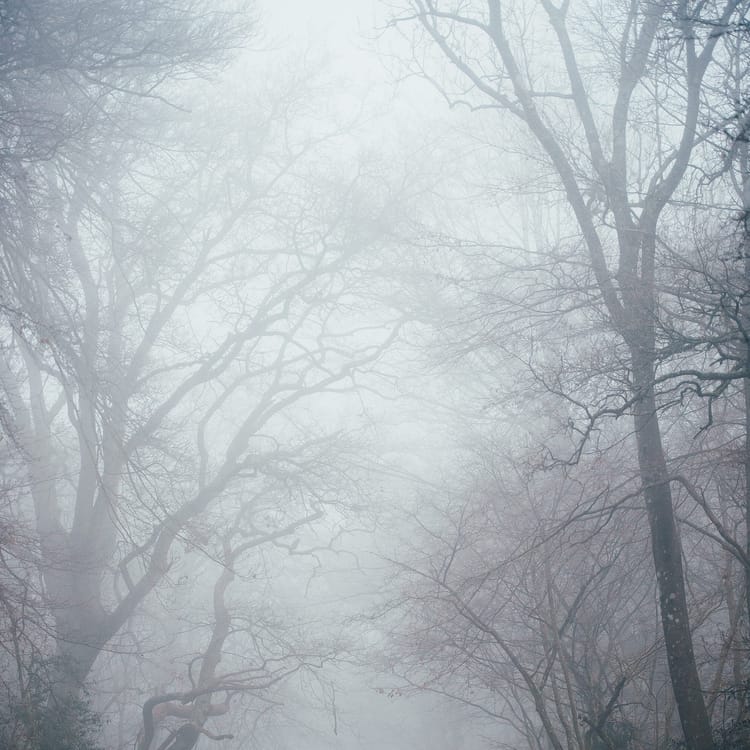
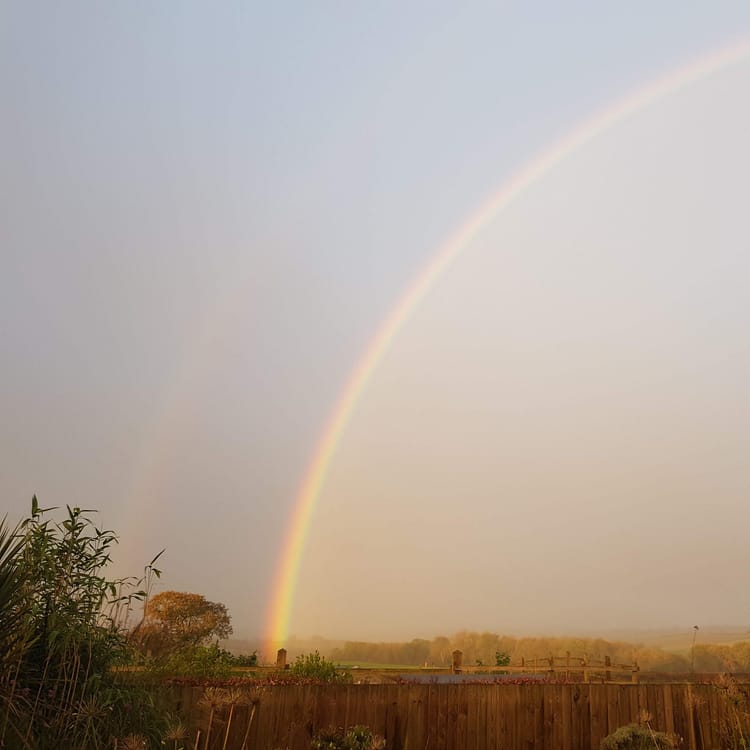
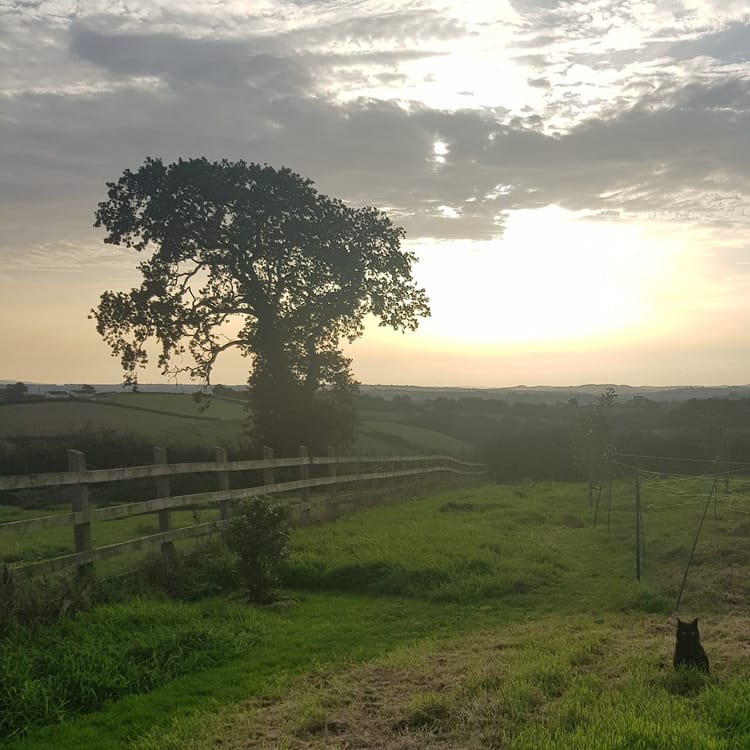
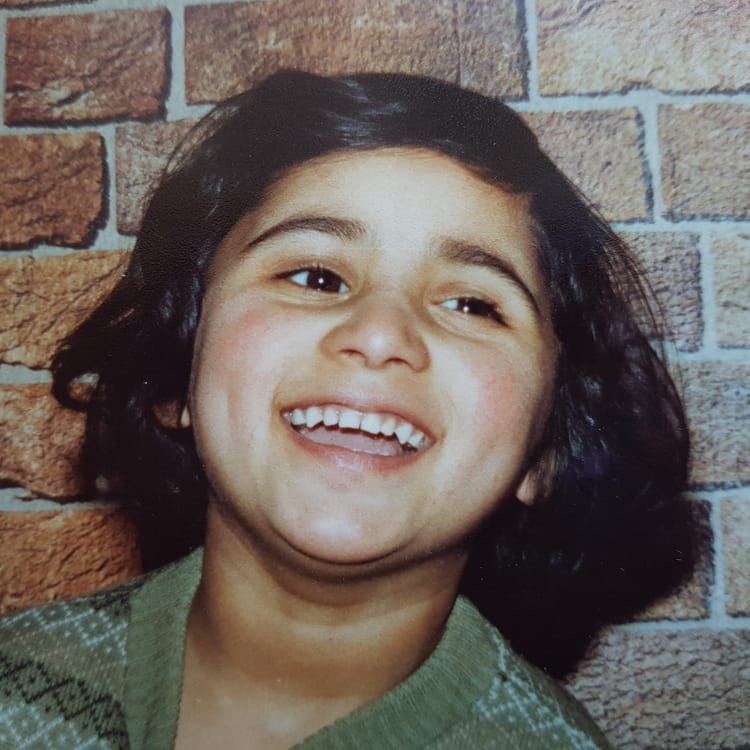
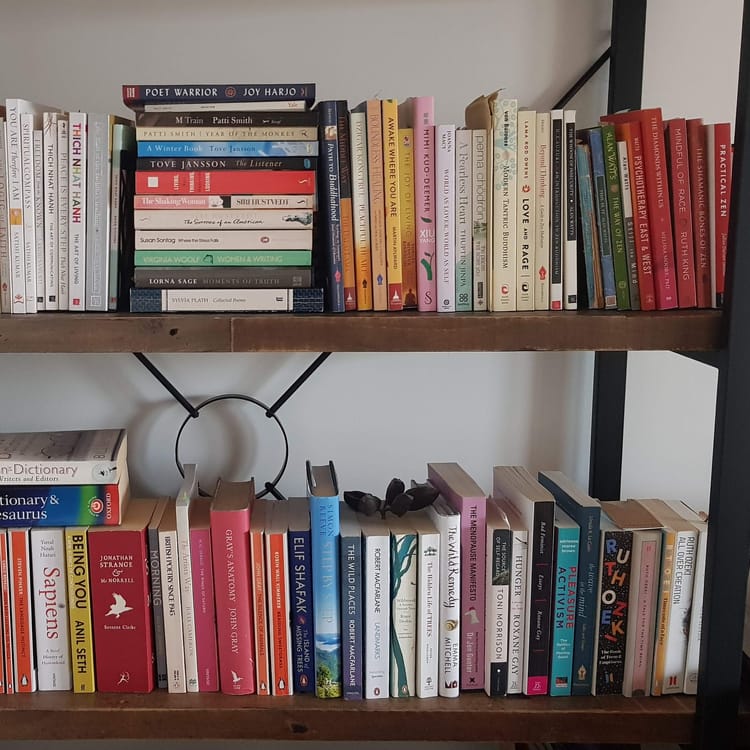
Member discussion